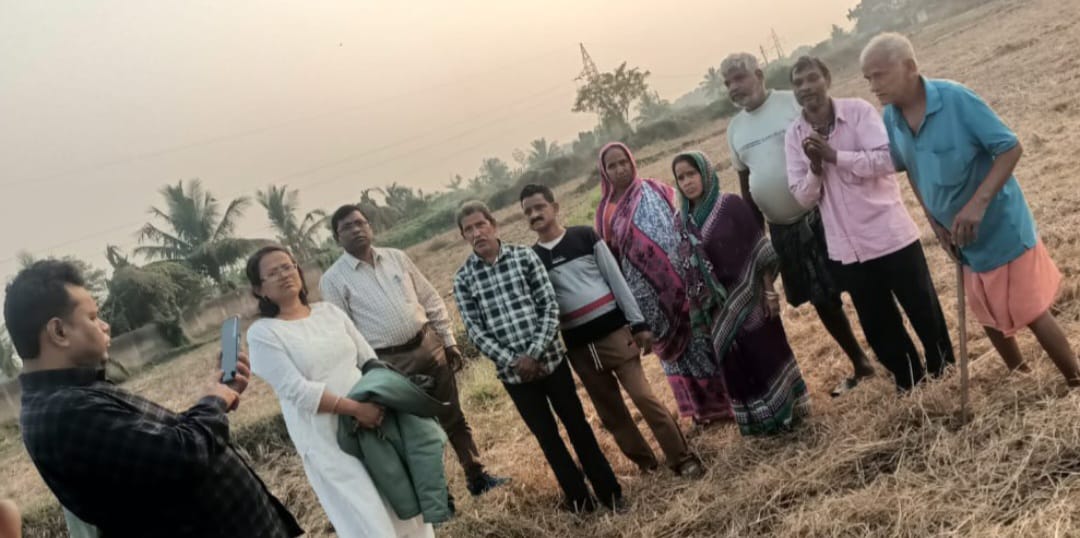

A cloud of suspicion hangs over an investigation into the devastating impact of polluted water from a shrimp processing plant in Balasore, Odisha. Farmers whose fields were ruined by the discharge allege that officials investigating the damage collected their signatures on blank sheets of paper, raising fears of a potential cover-up. This alarming development has prompted the affected farmers to seek intervention from their Member of Parliament (MP), reigniting a long-standing battle for justice.
For years, residents of Baunshamuhan area in Remuna block have been raising concerns about the Highland Agro shrimp plant. The plant’s discharge has allegedly contaminated surrounding farmland, destroying crops and impacting the livelihoods of local farmers. Among the most affected are Samarendra Mohapatra, Gautam Kumar Mahakuda, Jaldhar Mahakuda, Aniruddha Mohanty, and Laxmidhar Mahakuda, who claim their fields have been rendered useless due to the polluted water.
The Investigation and the Controversy:
After years of inaction despite complaints to local authorities, the district administration finally launched an investigation following media coverage of the farmers' plight. However, the investigation itself has become a source of further anxiety. Farmers report that officials visiting the affected fields asked them to sign blank papers, promising to fill in the details later at the office. This unusual practice has fueled suspicion among the farmers, who fear the blank signatures could be misused to manipulate the investigation's findings or deny them rightful compensation.
Farmers Seek MP's Intervention:
Distrustful of the investigation's process, the affected farmers have once again turned to their MP, Pratap Sarangi, seeking his intervention to ensure a fair and transparent inquiry. They fear their vulnerability is being exploited and that their voices will once again be silenced.
The Plant's Response and Wider Concerns:
Adding to the farmers' woes are allegations that the shrimp plant’s management has been intimidating them, pressuring them to sell their land. Furthermore, residents have reported health problems, including skin diseases, which they attribute to the polluted water surrounding the plant, raising serious environmental and public health concerns.
The situation in Balasore highlights a critical issue: the struggle of marginalized communities against powerful industrial interests and the importance of transparent and accountable investigations. The farmers' fear of manipulation, stemming from the collection of signatures on blank papers, underscores the need for greater oversight and procedural safeguards in environmental investigations. This incident raises broader questions about corporate responsibility, environmental protection, and the efficacy of local governance in protecting the rights and livelihoods of vulnerable citizens. The outcome of this case will have significant implications for similar communities facing environmental challenges and seeking justice. It serves as a stark reminder that the fight for environmental justice is often a long and arduous battle, requiring constant vigilance and advocacy.